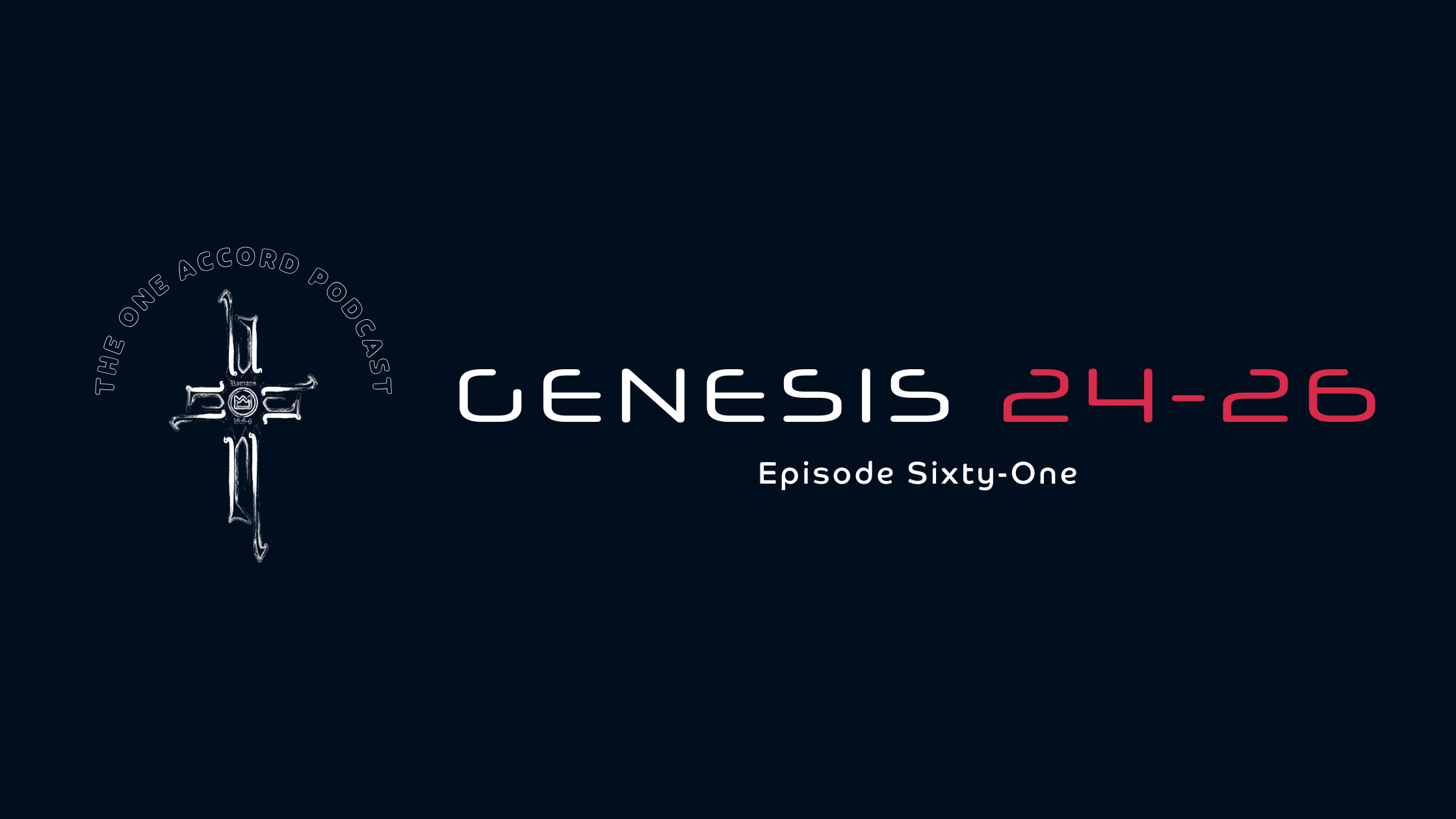Genesis 24-26
Isaac finds Rebekah, Jacob deceives Esau, and God's covenant continues through their trials.
Let’s talk about.
Summary
In this episode of the One Accord Podcast, Joe, Greg, and Eric delve into Genesis chapters 24, 25, and 26, exploring the themes of God's providence in finding a wife for Isaac, the implications of Abraham's marriage to Keturah, and the legacy left by Abraham at his death. The conversation emphasizes the cultural context of arranged marriages, the importance of maintaining religious distinctions, and the satisfaction of a life well-lived. In this conversation, the speakers delve into the biblical narratives of Genesis 24, 25, and 26, exploring the legacy of Abraham, the significance of prophecies regarding Isaac and Esau, and the moral complexities surrounding the birthright exchange. They discuss Isaac's actions mirroring those of his father Abraham, and the implications of Esau's marriages on the family dynamics. Throughout, they emphasize God's faithfulness and the unfolding of His promises despite human shortcomings.
Key Takeaways
God's providence is evident in the search for Isaac's wife.
Cultural contexts should be considered when interpreting biblical narratives.
The story of Isaac's marriage highlights God's guidance and provision.
Abraham's actions reflect his commitment to God's promises.
The significance of maintaining religious distinctions is emphasized.
Abraham's marriage to Keturah illustrates the fulfillment of God's promise to make him a father of many nations.
The legacy one leaves behind is a crucial aspect of a fulfilled life.
Abraham's satisfaction at his death reflects a life well-lived.
The importance of teaching future generations about God is highlighted.
The podcast encourages listeners to reflect on their own legacies. Abraham's legacy is marked by respect and significance.
The prophecy about Jacob and Esau highlights God's choosing.
Jacob's actions in acquiring the birthright reveal moral ambiguity.
Isaac's life reflects the patterns established by Abraham.
Esau's impulsive decisions lead to regret and consequences.
God's promises are fulfilled through flawed human actions.
The narrative emphasizes the importance of lineage and God's plan.
Esau's marriages introduce tension within the family.
The discussion reflects on the nature of divine sovereignty and human agency.
God's faithfulness persists despite human failures.

